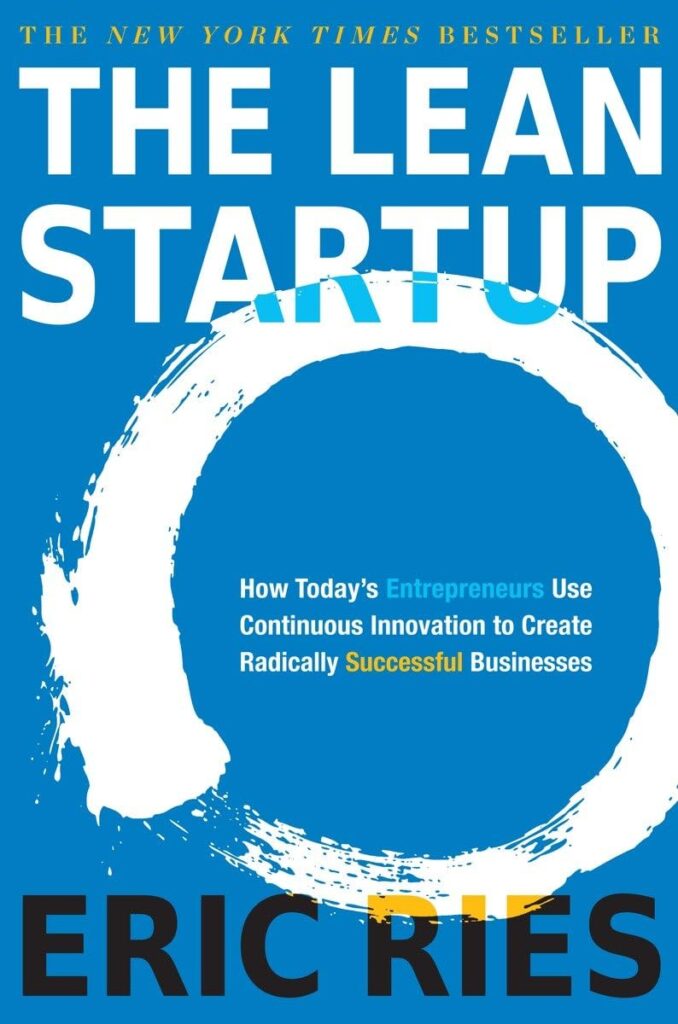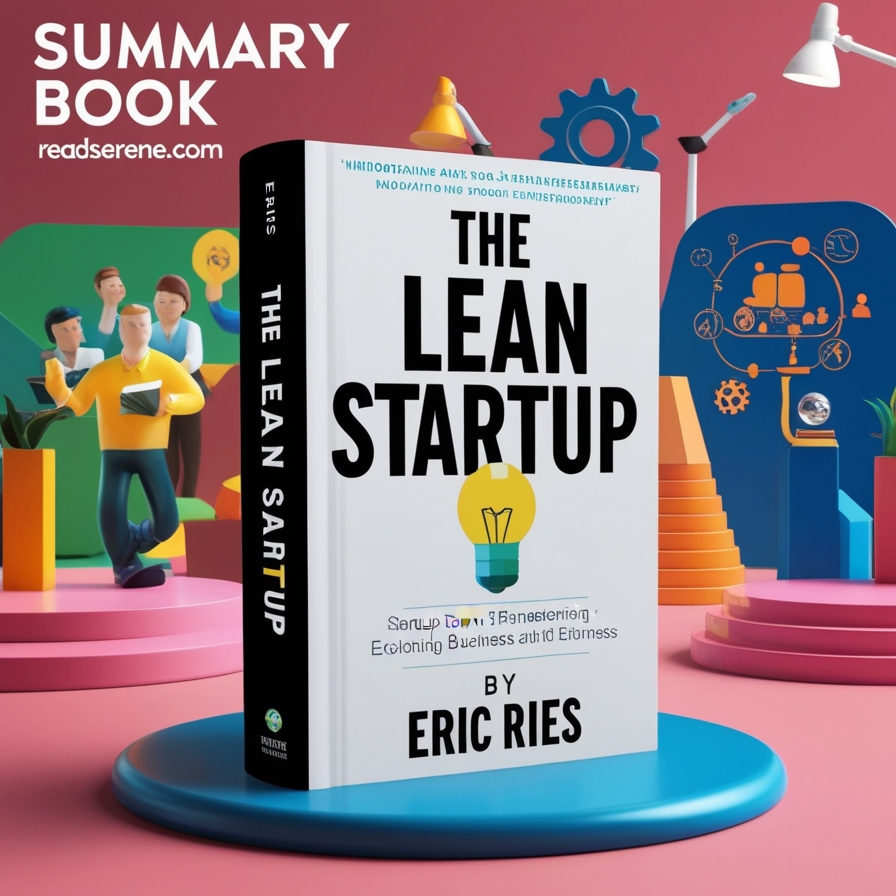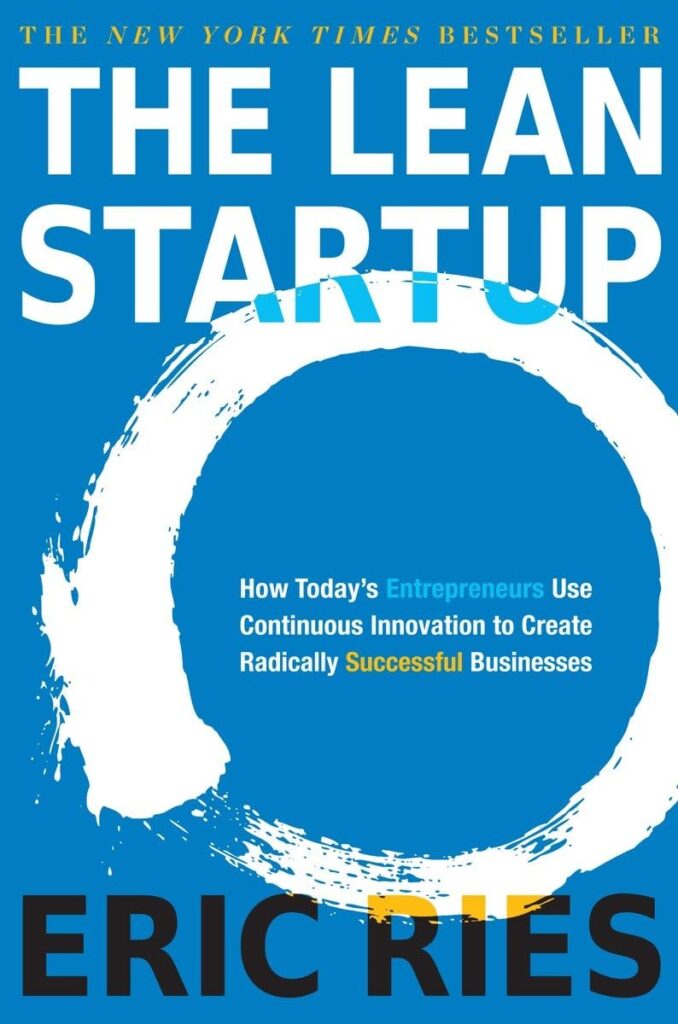Introduction
Have you ever wondered how some of the most successful entrepreneurs think, act, and achieve greatness? The answer might lie within the pages of The Lean Startup by Eric Ries. This remarkable book holds the key to unlocking powerful strategies that can drive you toward success in business, personal growth, and transformation. Whether you’re looking to start a new venture, scale your business, or make lasting changes, this book offers invaluable insights that can help you take the next step.
In this detailed summary, we’ll break down the core lessons and key takeaways from The Lean Startup, offering you a deeper understanding of its powerful concepts and actionable advice. As you read, you’ll discover how to apply these lessons to your own business ventures or personal goals, so you can create positive, lasting change.
By the end of this summary, you’ll not only have a clear understanding of the book’s main ideas but also feel inspired to take actionable steps toward achieving your entrepreneurial goals. This is more than just a book; it’s a blueprint for business success. If you’re ready to dive deeper into The Lean Startup, keep reading to uncover the life-changing wisdom within its pages.
1. Overview of The Lean Startup
The Lean Startup by Eric Ries is a transformative guide that dives deep into the concept of lean methodology in business, offering a fresh perspective on how startups can successfully navigate uncertainty and build products that meet customer needs. The book explores how startups can optimize their time, money, and resources to create products customers truly want.
Whether you’re a seasoned entrepreneur or someone looking to create a startup, this book provides invaluable insights into how to iterate, measure, and learn from your product development process. By blending actionable strategies with thought-provoking exercises, The Lean Startup serves as both a guide and a companion for anyone eager to build a successful business.
As you read, you’ll uncover practical advice and real-life examples that make the lessons easy to understand and apply. This book isn’t just about theory—it’s about transformation. With a mix of timeless wisdom and modern approaches, The Lean Startup stands out as a must-read for aspiring entrepreneurs and business leaders.
2. Key Takeaways and Lessons:
Chapter 1: Start
In this chapter, Eric Ries introduces the concept of the Lean Startup method, emphasizing the importance of beginning with a clear hypothesis and testing it early. He argues that the traditional “big launch” approach to product development is flawed and costly. Instead, startups should embrace a continuous cycle of building, measuring, and learning. The key takeaway is that by validating assumptions early, startups can avoid wasting resources on ideas that don’t work.
Key Point: Start with small experiments to test your ideas and gather feedback quickly.
Chapter 2: Define
Ries focuses on the importance of defining what constitutes a startup’s success. He introduces the concept of “innovation accounting,” where metrics are used to measure the progress of a startup rather than vanity metrics like website visits. The key takeaway from this chapter is that businesses should track metrics that show real progress, such as customer retention and product usage.
Key Point: Establish clear metrics that reflect real progress, not just activity.
Chapter 3: Learn
In this chapter, the focus is on the scientific method as applied to product development. Ries highlights the importance of learning from each experiment and using that knowledge to guide future decisions. The key takeaway is that every failure is an opportunity to learn and adjust the product.
Key Point: Use validated learning to inform your next steps.
Chapter 4: Experiment
This chapter explores the value of testing hypotheses quickly and efficiently using minimum viable products (MVPs). Ries argues that startups should aim for a “pivot or persevere” approach—based on the results of each test, startups either pivot to a new direction or persevere with the existing one. The key takeaway is that rapid experimentation and iteration are essential for success.
Key Point: Use MVPs to quickly test your ideas and learn from the results.
Chapter 5: Measure
Ries discusses how to measure progress through actionable metrics rather than vanity metrics. He introduces the concept of “innovation accounting” and advises startups to focus on customer behavior and engagement as true indicators of progress. The key takeaway is that startups should measure what matters and avoid focusing on superficial numbers.
Key Point: Track meaningful metrics that lead to actionable insights.
Chapter 6: Pivot (or Persevere)
In this chapter, Ries explains how startups should respond when they face challenges. A pivot is a fundamental shift in strategy, while perseverance means staying on course. The key takeaway is that entrepreneurs must be willing to change direction if the data suggests that their current approach isn’t working.
Key Point: Use data to decide whether to pivot or persevere.
Chapter 7: Batch
Ries introduces the concept of batch processing, which involves developing products in small, manageable increments rather than large, time-consuming releases. The key takeaway is that smaller batches allow for quicker feedback and less waste.
Key Point: Focus on creating small batches to receive faster feedback and improve the product.
Chapter 8: Build-Measure-Learn
Ries recaps the core Lean Startup process—Build-Measure-Learn. He emphasizes the importance of continuously cycling through these steps to create a product that truly fits the market. The key takeaway is that startups must constantly iterate and improve, relying on real customer feedback rather than assumptions.
Key Point: Continuously build, measure, and learn to refine your product.
Chapter 9: Innovate
In this final chapter, Ries discusses how innovation is essential for the long-term success of any startup. He emphasizes the importance of staying adaptable and open to new ideas as the business grows. The key takeaway is that innovation is an ongoing process that requires continuous learning and adaptation.
Key Point: Stay innovative by continuously testing and evolving your business.
3. How This Book Will Help You
By implementing the actionable steps in The Lean Startup, you will begin to notice profound changes in the way you approach entrepreneurship. Whether you’re trying to launch a product, scale your business, or streamline your processes, the insights shared by Eric Ries are guaranteed to help you succeed. Not only will you gain valuable tools for product development, but you will also learn how to approach challenges with a fresh, empowered mindset.
4. Additional Benefits
In addition to its actionable advice, The Lean Startup offers a wealth of examples and case studies that show how real startups have applied these methods. These examples will help you gain a deeper understanding of how to put the Lean Startup principles into practice.
5. Why You Should Buy the Book
While this summary provides a glimpse into what you can expect from The Lean Startup, there’s no substitute for reading the book in full. The complete version offers more in-depth insights, additional real-life examples, and actionable advice that can truly help you make lasting changes in your business. By purchasing the book through this link, you’ll be supporting our site, allowing us to continue providing quality book recommendations and summaries.
Call to Action
Don’t miss out on the chance to unlock the life-changing wisdom in The Lean Startup! Click the link below to buy your copy on Amazon today and start your journey toward business success.
FAQs
What is The Lean Startup about?
The book outlines a systematic, scientific approach to creating and managing successful startups. It focuses on using lean principles to build a product and company efficiently.
Who should read The Lean Startup?
This book is for anyone looking to start or grow a business, from entrepreneurs to product managers and business leaders.
What are the main takeaways from the book?
The main takeaways are the importance of rapid experimentation, measuring meaningful progress, and making data-driven decisions to build successful businesses.
How can I benefit from this book?
By applying the principles of Lean Startup, you’ll learn how to reduce waste, make better decisions, and launch products that truly meet customer needs.
Where can I purchase The Lean Startup?
You can purchase The Lean Startup on Amazon via this link Click Here.

What is the top 1 book in the world Without religious books?
The top book in the world, excluding religious texts, is Don Quixote by Miguel de Cervantes.
Is it OK to read eBooks?
Yes, reading eBooks is perfectly fine and offers convenience for readers who enjoy digital content.
What is the #1 most read book in the world Without religious books?
The most read non-religious book in the world is Don Quixote by Miguel de Cervantes.
Who has read 1,000 books in the world?
The individual known for reading the most books is Shikha Soni, who has read over 1,000 books.
What are the top 10 most read books?
Don Quixote by Miguel de Cervantes -30% off
Harry Potter series by J.K. Rowling 44% off
The Lord of the Rings by J.R.R. Tolkien -54% off
The Alchemist by Paulo Coelho -35% off
The Da Vinci Code by Dan Brown -39% off
Think and Grow Rich by Napoleon Hill -22% off
1984 by George Orwell -66% off
Pride and Prejudice by Jane Austen -42% off
To Kill a Mockingbird by Harper Lee -43% off
The Little Prince by Antoine de Saint-Exupéry -28% off
Conclusion
In conclusion, The Lean Startup by Eric Ries is more than just a book—it’s a roadmap for creating a successful business through innovative thinking and efficient product development. Through its insightful chapters, practical advice, and actionable strategies, it offers readers the tools they need to make meaningful changes in their entrepreneurial journeys.
Whether you’re looking to launch a new business, refine your product, or scale your startup, The Lean Startup delivers invaluable insights to guide your way. Its blend of real-life examples, research-backed principles, and actionable steps makes it a must-read for anyone serious about building a successful business.
If you’re ready to unlock the full potential of The Lean Startup and apply its teachings to your own life and business, don’t hesitate to pick up a copy today. So why wait? Dive into the world of The Lean Startup and let it inspire you to take the next step toward entrepreneurial success.


